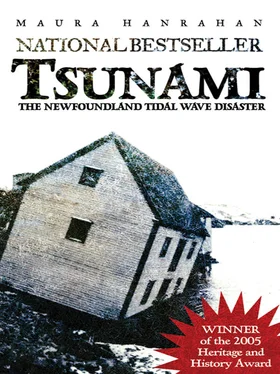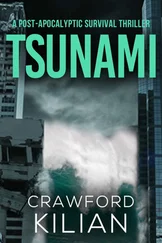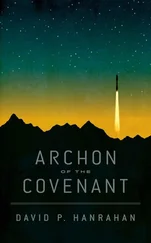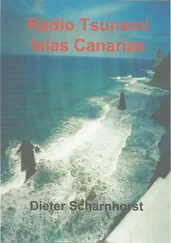For the past five years, eighteen-year-old Mary Walsh of Lord’s Cove had worked in a hotel in St. Pierre during the winter and spring and helped a French woman there raise her three children. Every summer she returned home to make fish for her father. Mary’s mother had died not too long before from an illness that had plagued her for years, leaving Mary and her younger brother, Bertram, motherless. Like most Roman Catholics, Mrs. Walsh had left this life with a lighted candle in her clasped hands, supported by the loving hands of a stronger relative. Mary’s mother had expired before the candle had burned more than an inch down. It was a memory that seared Mary’s young brain.
That year, 1929, Mary was late going back to St. Pierre, so on a November night she saw the rocky harbour bottom for the first time in her life.
“Pop!” she called out from the front porch. “There’s no water in the cove. It’s all rocks.”
“What?” her father, Jim, answered incredulously.
“Come and see!” Mary insisted.
As soon as her father joined her in the doorway, they saw the first wave coming. All around them, people were running around shouting frantically. The wave seemed as if it was coming from the sky, it was so high. As it came closer, it seemed to pick up speed. Its nasty edge was unmistakable.
Mary’s head spun round when her father ran back into the house and upstairs. She fought back panic. Everyone else was running away from their houses to higher ground. Mary stood frozen to the linoleum in the porch, her breathing shallow. What should she do? What was her father doing?
Then Jim rushed back down the stairs, his footfalls heavy on the steps. In his hands was the candle that had led Mary’s mother to the afterlife. Mary’s eyes glistened with moisture, the roar of the wave outside almost forgotten. Wordlessly, Jim jumped into his boots and went out to the bank where the capstan was and stuck the candle down in a piece of chain. Mary watched him light it and back away. Then he turned and ran, grabbed his daughter, and rushed her to the hills above the village.
As the second wave hit Lord’s Cove, the candle remained lit, a tiny fleck of light surrounded by wild waves that somehow did not come close to it. The little light did not go out even as the third wave roared into the beach and demolished flakes, stages, dories, skiffs, and houses.
The tsunami did untold damage in Lord’s Cove, affecting virtually every family. The men wondered how they would fish next spring. Tusa Chappalla, John Collier, Francis Ferrie, David Fitzpatrick, James Fitzpatrick, Thomas Hodge, and William Lamb were among the many whose stages were ripped to bits by the waves. Other fishermen—Martin Fitzpatrick, Clement Harnett, John Herlidan, Frederick Hennebury, Clotaire Isaacs, and Eugene Papail among them— lost their dories and trap skiffs as well as their stages and stores.
The women saw that from now on even curing fish would be a problem, since some of beaches were washed away. One of these belonged to Prosper Walsh, who had done so much to warn people of the coming disaster. Prosper, with a wife and four dependent children, had built up his eight foot high beach with a wooden and rock breakwater, costing him $150.00. The tsunami washed it all away. Even more worrying, the giant waves seemed to have robbed the forty-six-year-old man of his eyesight. As the last wave receded, so did Prosper’s vision, so that from then on he saw everything through a blur.
Upstairs in the Rennie house, four-year-old Margaret had been slipping into the heaviness of nighttime sleep when the first wave approached. She lazily turned her head on the pillow her mother, Sarah, had puffed up for her, and glanced at the lamp that burned at the head of the stairs. Then the house shook as if ten gales were bearing down on it and the lamp went out. Margaret felt the shock of a frigid wetness and then nothing.
The three waves that slammed into Lord’s Cove were between sixteen and fifty feet high. They hit the harbour at almost 130 kilometres an hour, clearing the little cove of everything it had held.
The Rennie house, containing Margaret, her mother, Sarah, and siblings Rita, Patrick, and Bernard, was dragged into the harbour and then thrown back into The Pond, where it now lay, halfsubmerged. Patrick Sr., Sarah’s husband, howled, half-mad, at the top of the hill, where his friends had led him. His surviving sons, Martin and Albert, stood hollow-faced by his side, too stunned to speak. Every few minutes Albert balled his hands and rubbed his eyes as if he could change the sight in front of him by doing so.
After the third wave the sea returned to its pre- tsunami calmness, the very state that had deceived them so. The moon enveloped the still cove in a light that seemed strangely protective, though it revealed the splinters that had been stages and flakes and now clogged up the harbour. When an hour had passed with no sign of another wave, Patrick’s friend, John Joe Fitzpatrick, turned to him and said, “I think we’ll try and get to your house.”
Another neighbour, Herb Fitzpatrick, nodded in agreement.
“It’s calm now, Pat,” he said. “And I expect it’ll stay that way.”
“We’ll do what we can, Pat,” John Joe added.
He patted Martin and Albert on the shoulders as he began to move down the hill, Herb by his side.
“Mind your old man, boys,” he called back.
Martin and Albert closed in on their father. They were still numb with shock themselves.
As they neared The Pond, the men met Jim Walsh, who had lost virtually nothing to the waves, thanks to his wife’s death candle. Jim had just come from Fred Hennebury’s property where the two men had tried in vain to recover the bodies of Hennebury’s sheep. The animals had been swept away by one of the waves and then pushed under a fishing store on the next incoming wave. They were barred in by a boat that got jammed there by the final wave. All the sheep drowned.
Jim was desperate to help his neighbours, but was at a loss as to how. Herb and John Joe told him they needed a boat to put in The Pond to go out to the Rennie house.
“Mine is all in one piece,” Jim said. “We just have to get it hauled over there.”
Adrenalin pumped through the men’s veins as they lugged the dory across the beach and over the scrap of land to The Pond. Other fishermen carried the oars. Then the three of them, John Joe, Jim, and Herb, jumped into the dory and rowed to the house tilting in the water, their hearts galloping in fear. When they reached it they saw that the cold water came up to the ceiling of the first floor. From the shore of The Pond, they heard a woman scream.
Suddenly, the house rose up as if to make their task easier. Pond and sea water drained out of it, followed by pots, pans, and even table legs. Then they saw the high chair, horizontal and still holding baby Bernard. John Joe reached in the broken window and pulled the chair toward the dory, trying to keep as steady as he could. The sound of his own breathing was all he could hear as he cut the child from the chair and passed him to Herb, who had removed his coat to wrap little Bernard in. They found Rita next, and then her brother, Patrick. Their mother, Sarah, was under the kitchen table, next to the sewing machine—it seemed she did not even have time to move away from her perch.
Only young Margaret was missing. The men could see clearly through the first floor of the house and she was not there. They decided to row back to shore with their sad, sad cargo.
As villagers carried the Rennie family bodies out of Jim Walsh’s dory, sobs rang through the harbour. In the hall on top of the hill that marks the western entrance to Lord’s Cove, women were already preparing a long table to receive the bodies of Sarah and her children for waking. Their husbands would gather enough planks to make one large and four smaller coffins.
Читать дальше












